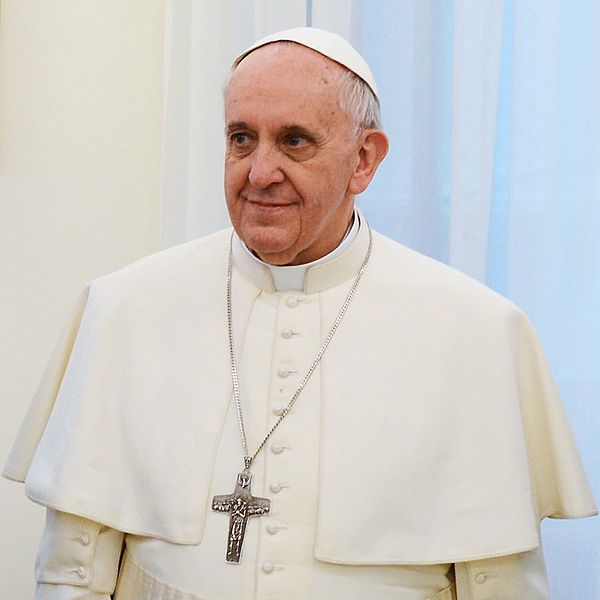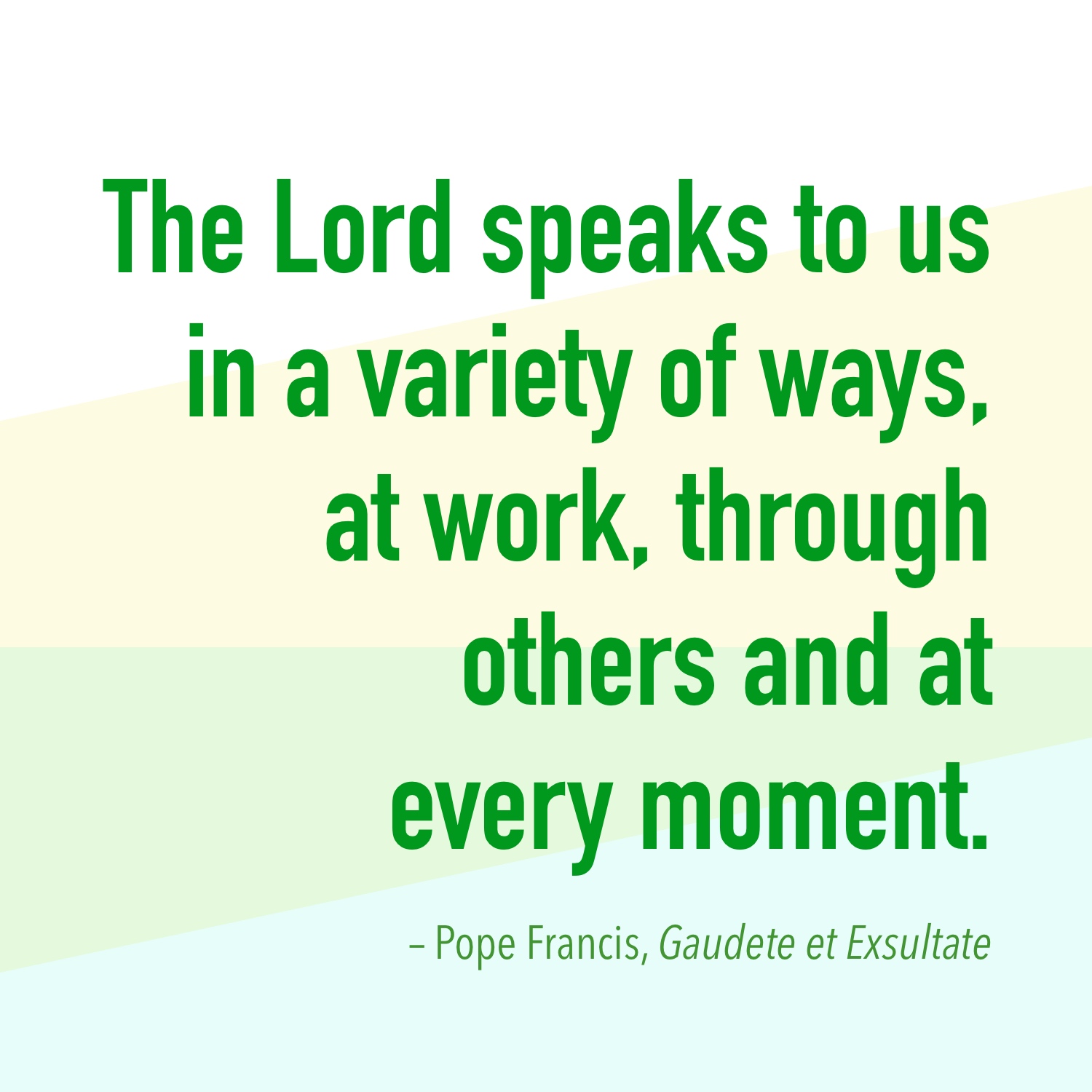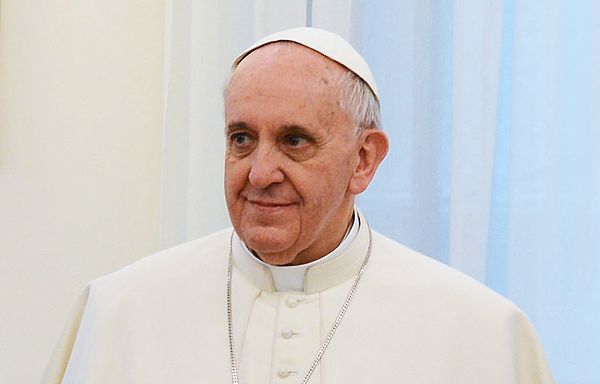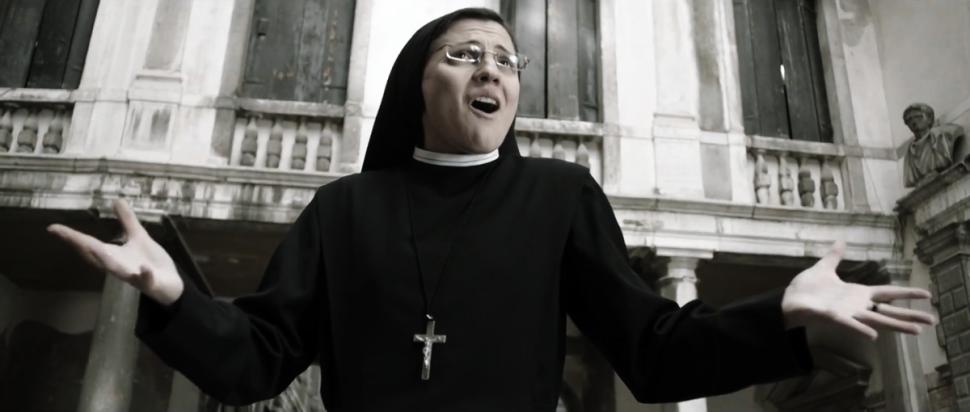 What better a call to the Christian life than “Rejoice and be glad!” This is the title and the opening words of Pope Francis’ newest apostolic exhortation, Gaudate et Exsultate. In the first paragraph Francis frames holiness as Jesus’ desire for us “not to settle for a bland and mediocre existence.” Throughout the document our Jesuit pope’s Ignatian spirituality spills forth, calling all people to notice the holiness not just in canonised saints but “in those parents who raise their children with immense love, in those men and women who work hard to support their families, in the sick, in elderly religious who never lose their smile.” We need not be a priest or religious in order to be holy. This was the declaration of the Second Vatican Council: a universal call to holiness. And Francis draws out the simple practicality of living this holiness through the small and ordinary activities of daily life: speaking well of others, listening to your children’s dreams, saying a kind word to a poor person.
What better a call to the Christian life than “Rejoice and be glad!” This is the title and the opening words of Pope Francis’ newest apostolic exhortation, Gaudate et Exsultate. In the first paragraph Francis frames holiness as Jesus’ desire for us “not to settle for a bland and mediocre existence.” Throughout the document our Jesuit pope’s Ignatian spirituality spills forth, calling all people to notice the holiness not just in canonised saints but “in those parents who raise their children with immense love, in those men and women who work hard to support their families, in the sick, in elderly religious who never lose their smile.” We need not be a priest or religious in order to be holy. This was the declaration of the Second Vatican Council: a universal call to holiness. And Francis draws out the simple practicality of living this holiness through the small and ordinary activities of daily life: speaking well of others, listening to your children’s dreams, saying a kind word to a poor person.
Christ’s Mission
The pope reminds us what Ignatius teaches in his Principle and Foundation, and the Call of the King meditation, that our holiness comes in participating in and labouring with Christ in his mission. We must pray with the events of Jesus’ life, he says. “The contemplation of these mysteries, as Saint Ignatius of Loyola pointed out, leads us to incarnate them in our choices and attitudes.” This is precisely the idea of giving God skin, making God incarnate through our very lives and actions. This is the way we participate in Christ’s great project for the world. “Your identification with Christ and his will involves a commitment to build with him that kingdom of love, justice and universal peace.” Both prayer and action are necessary in the path to holiness. “We are called to be contemplatives even in the midst of action, and to grow in holiness by responsibly and generously carrying out our proper mission.”
This focus on mission saturates the Spiritual Exercises of Saint Ignatius, the Christian life, and Pope Francis’ exhortation. But again, it doesn’t require just grand gestures, but little ones. The pope speaks about each minute and moment and choice and action becoming a way to serve God’s mission. With each Beatitude Francis reminds us of Jesus’ invitation to a life of joy by our response. He notes that being poor in spirit is similar to St Ignatius’ understanding of indifference, “which brings us to a radiant interior freedom.”
 Embracing God’s Mystery
Embracing God’s Mystery
Francis doesn’t shy away from the reality of mystery. “Contemporary gnostics”, as he calls them, leave no room for nuance or the Spirit. They wish to perfectly explain the complexities of doctrine and the Gospel as if God has been figured out. “When somebody has an answer for every question, it is a sign that they are not on the right road,” the pope says. “God infinitely transcends us; he is full of surprises.” Francis writes that “in the Church there legitimately coexist different ways of interpreting many aspects of doctrine and Christian life; in their variety, they ‘help to express more clearly the immense riches of God’s word’.”
The pope speaks about all issues of justice on an equal plane, that the poor, the destitute, the vulnerable, the underprivileged, the refugee, and those already born are as “equally sacred” as the innocent unborn.
We often hear it said that, with respect to relativism and the flaws of our present world, the situation of migrants, for example, is a lesser issue. Some Catholics consider it a secondary issue compared to the “grave” bioethical questions. That a politician looking for votes might say such a thing is understandable, but not a Christian, for whom the only proper attitude is to stand in the shoes of those brothers and sisters of ours who risk their lives to offer a future to their children.
All this is in the task of the mission of upholding the dignity of every human person on earth. Francis even calls out Catholic media (and maybe even the internet commenters on those sites) for unethical and disrespectful “verbal violence” against others. “The saints do not waste energy complaining about the failings of others,” he says.
Magis
And of course Francis concludes in the spirit of magis, that the Church and the entire Christian community is being called to more. We can’t succumb to the seduction of complacency or stagnancy. “God is eternal newness. He impels us constantly to set out anew, to pass beyond what is familiar, to the fringes and beyond.” We must not make our Christian life “a museum of memories” but be open to God’s new surprises in our time and place. This is done through prayer and discernment. We must look on our collective and personal history in the light of the risen Jesus and discern our call forward. The pope references Ignatius’ Contemplation to Attain Love where we’re asked to remember the love and blessings God has poured out upon us. “Think of your own history when you pray, and there you will find much mercy,” the pope writes. “It makes sense to ask [God] to shed light on the smallest details of your life, for he sees them all.” Discerning and listening to these little details through the various moments of our life reveal our purpose in God, leading to new life. “Discernment is not about discovering what more we can get out of this life, but about recognizing how we can better accomplish the mission entrusted to us at our baptism.”
Let us conclude with a few reflection questions Pope Francis offers us. Our prayer, he first tells us, is a heart-response to our daily encounter of God, where we can discern the new paths to holiness to which God is calling us. And so he asks:
Are there moments when you place yourself quietly in the Lord’s presence, when you calmly spend time with him, when you bask in his gaze?
Do you let his fire inflame your heart?
Unless you let him warm you more and more with his love and tenderness, you will not catch fire. How will you then be able to set the hearts of others on fire by your words and witness?
Go forth, and set the world on fire.
You can read the full apostolic exhortation here. Make quiet prayer a part of your everyday by using one of our audio Examens or meditations, which are free to listen to or download.
Listen to the podcast version of this post…








